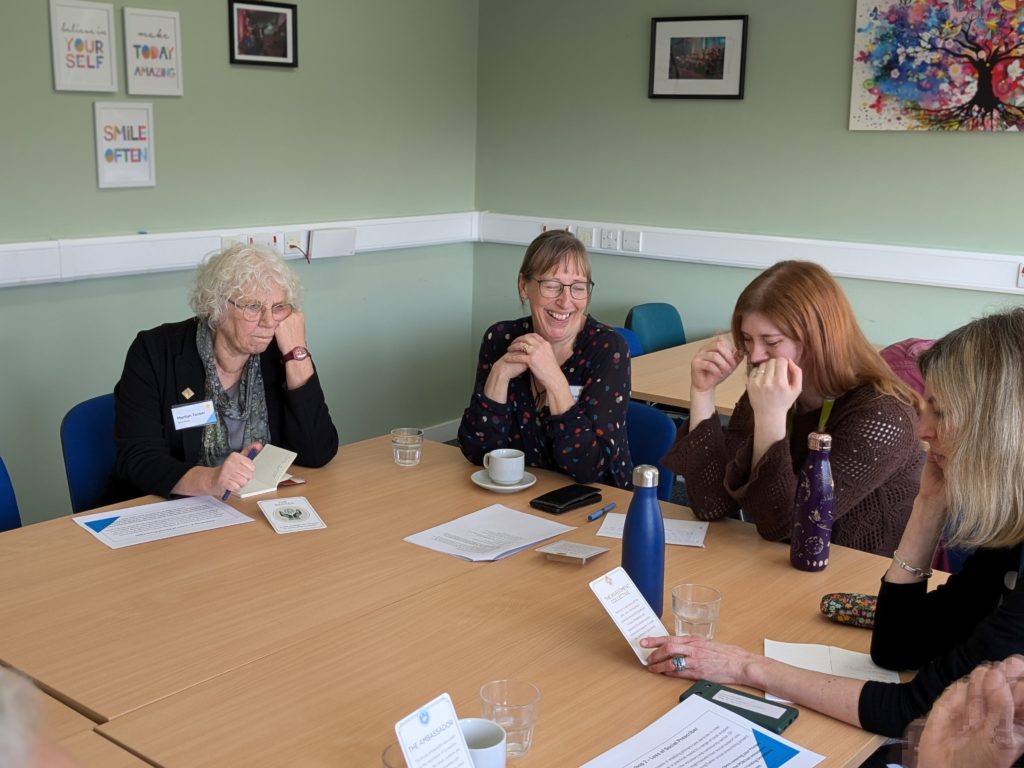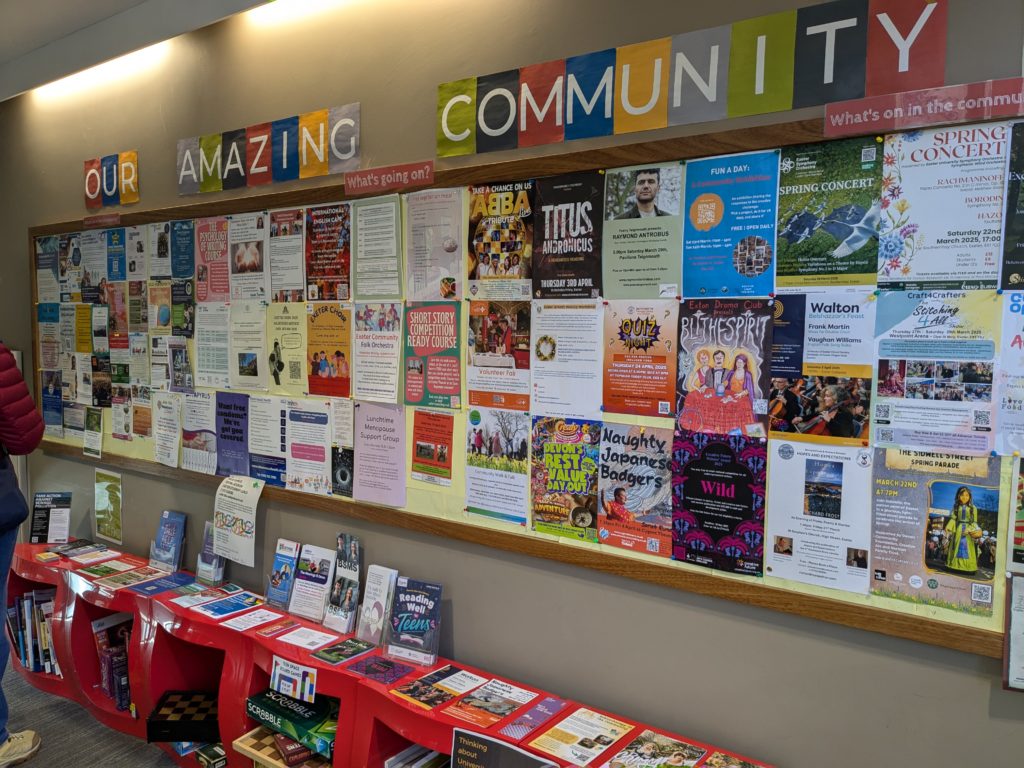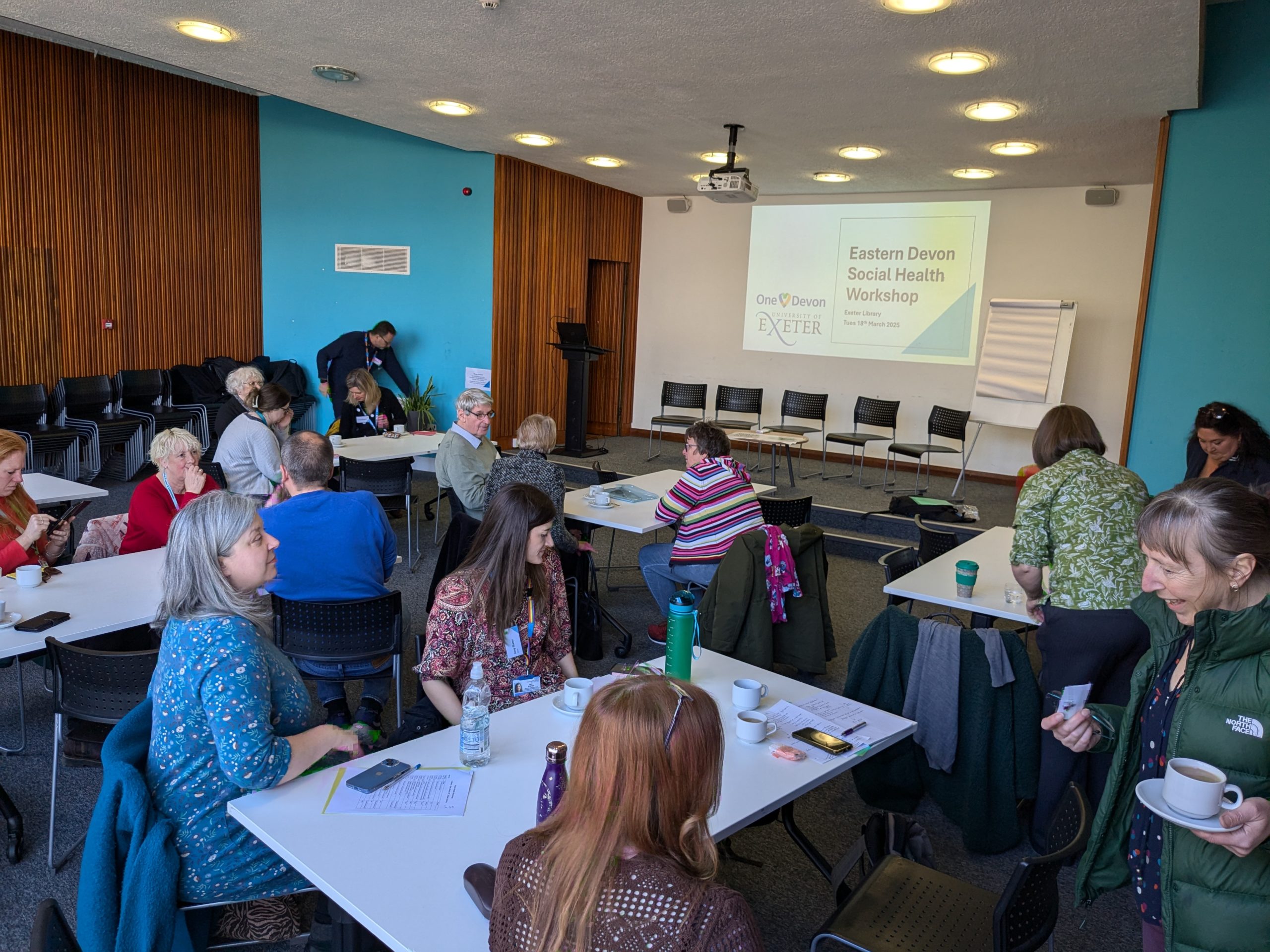Professor Manuela Barreto and Camilla Rooney from Wellmoor share insights from their Social Health Learning Project – a collaboration between University researchers and community partners to explore social health interventions in East Devon. Having been shortlisted for the 2024-25 round of Engaged and Participatory Research Funding, this work was supported by an alternative funding source, as it tackled ambitions closely linked to the University’s Civic University Agreements.
Amount of award: £5,870

The Social Health Learning Project was created to understand how we can better support communities to build and sustain the relationships that keep people well. It is now well established that social health — the state of our relationships — is vital to wellbeing. There is also a growing appetite to explore place-based approaches to tackling and preventing poor social health. What is missing, however, is the framework for understanding how we strategically (re)organise and resource what already exists in our communities to meet the growing demand for connection. Using bottom up observation, we wanted to identify core conditions that are essential for communities to sustainably build social infrastructure , and to understand what roles might be necessary to achieve this.

We sent three trusted community partners (Devon Community Foundation, Wellmoor and Ottery Help Scheme) to 17 communities within Eastern Devon, covering urban neighbourhoods, coastal and market towns with rural hinterlands, and rapidly growing new towns. They spoke to 200 individuals across 14 sectors to explore how we, as communities, might respond to this challenge together. From this rich data, we synthesised emerging patterns and themes. We also used this funding to deliver a workshop with conversation participants, involving them in testing and refining the emerging model. During the workshop we presented a new framework made up of six interdependent roles: The Facilitator, The Architect, The Banker, The Guide, The Ambassador, and The Investment Collective.
The workshop enabled us to share and discuss findings from the ongoing project to ensure understanding and relevance to community partners. We were able to identify opportunities to apply this learning, and co-develop priorities for an action plan to support social health across the Eastern Locality Care Partnership (ELCP) and beyond.
Insights from the workshop also fed into the final learning report which includes a consolidation of best practice from communities across Eastern Devon. The resulting framework provides a better understanding of the conditions that communities need to effectively build connection for themselves. This can serve as a useful tool for communities looking to build effective and resilient social infrastructure, and can allow decision makers to make informed and pragmatic decisions about effectively facilitating the health of communities.

Whilst we have tested this framework in the abstract through our Social Health Workshop, it still remains untested in the ‘real world’. The natural next step for the Social Learning Project is to road test this framework, moving from insight to action, and using the framework to guide diagnosis, design, and delivery of different social infrastructure projects. In Autumn 2025 this will be tested in a community setting in rural Dartmoor, where they are establishing a Community Builder role to observe the framework’s success. We hope that this will allow us to better establish whether the framework does indeed create the conditions for communities to build effective social infrastructure for themselves.

